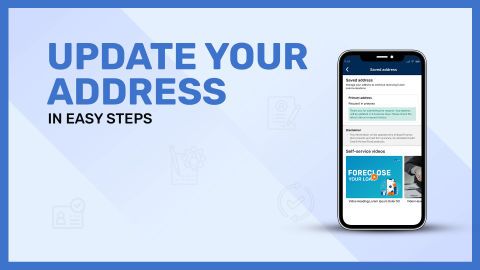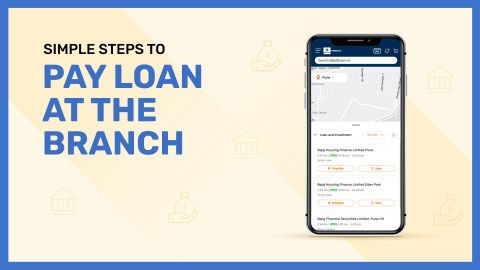Loan scams are often sophisticated and hard to spot at first glance. Fraudsters use emails, phone calls, fake websites, and even social media to appear legitimate. Once you express interest, they typically ask for an upfront payment or sensitive personal details like Aadhaar, PAN, or bank account numbers.
For Indian borrowers, this is particularly concerning given the rising demand for personal and business loans. Staying informed is your first line of defence. Whether you are applying for a loan via traditional banks or digital NBFCs, it is essential to verify the source before engaging.
This guide will help you understand how to identify and avoid loan scams, protect your data, and take legal action if needed. Let us begin with the basics.
Understanding fake loan offers
Fake loan offers are fraudulent schemes designed to deceive borrowers into paying money or sharing sensitive personal information under the false promise of receiving a loan. These scams are often disguised as offers from reputed banks, NBFCs, or even government-backed programmes.Scammers usually advertise quick disbursal loans with minimal documentation and no credit checks. Once a person applies, they are asked to pay an upfront processing fee, insurance cost, or GST. Once the payment is made, the fraudster disappears, and the promised loan is never disbursed.
In some cases, scammers use fake identities and clone official websites or email domains to appear authentic. This makes it difficult for unsuspecting borrowers to differentiate between genuine lenders and fake ones.
The target audience of such frauds is typically individuals with low credit scores, urgent financial needs, or limited access to traditional credit channels. Recognising the early signs of a fake loan offer is crucial to protecting your finances and personal data.
Common red flags in loan scams
Watch out for the following red flags that often indicate a loan scam:- No credit check required: Legitimate lenders always assess creditworthiness before approving a loan.
- Unsolicited offers: Messages or calls offering loans you did not apply for are often fake.
- Too-good-to-be-true terms: Unrealistic interest rates or zero processing fees usually signal fraud.
- Upfront payment request: Be wary of demands for money before receiving your loan.
- Pressure tactics: Scammers create urgency to rush you into making a decision.
- No physical office address: Legitimate lenders will have verifiable office locations.
- Non-official email domains: Email addresses not ending in the official company domain (e.g., gmail.com) should raise concern.
- Lack of transparency: Vague answers about loan terms, fees, and process timelines are warning signs.
- Poor website quality: Look for spelling errors, outdated design, and broken links.
- No loan agreement: Not providing a detailed loan contract is a major red flag.
Types of loan scams
There are several common types of loan scams operating across India, each using unique tactics:- Advance fee frauds: The scammer asks you to pay a small fee for loan processing, insurance, or GST. Once paid, they vanish without a trace.
- Phishing scams: You are directed to fake websites or sent links via SMS/email, asking you to enter sensitive financial details.
- Fake NBFCs or banks: Fraudsters impersonate reputed companies using cloned websites, fake certificates, and counterfeit documents.
- Fake government schemes: Scams offering loans under PMAY or Mudra Yojana ask for verification charges, pretending to be official representatives.
- Loan app frauds: Illegitimate loan apps may disburse small amounts but later harass borrowers using unethical recovery tactics or misuse personal data.
- Credit repair frauds: These claim to improve your CIBIL score in exchange for a fee but do not provide any real service.
How to verify legitimate lenders
Use the following checks to ensure a lender is genuine:- Check RBI registration: Confirm if the NBFC or lender is registered with the Reserve Bank of India.
- Verify website and contact details: Look for a secure URL (https://), and cross-check phone numbers, addresses, and emails on the official website.
- Read customer reviews: Use platforms like Google Reviews, Trustpilot, or forums like Quora and Reddit.
- Ask for a loan agreement: Genuine lenders always provide a detailed agreement outlining terms, fees, and repayment schedule.
- Do not pay upfront: Authentic lenders deduct charges from the sanctioned amount or include them in EMIs.
- Look for a physical office: Check if they have a real, traceable branch or office address.
- Check for regulatory disclosures: Ensure they provide documents like KFS (Key Fact Statement) and MITC (Most Important Terms and Conditions), as mandated.
Protecting your personal information
Your personal and financial information is valuable. Here is how to keep it safe:- Avoid clicking unknown links: Only access loan portals from verified sources.
- Do not share OTPs or passwords: No legitimate lender will ever ask for these.
- Use strong passwords: Update them regularly and avoid storing them on shared devices.
- Enable two-factor authentication: Especially for bank apps and loan platforms.
- Never email sensitive documents: Send KYC documents only through secure, encrypted channels.
- Monitor your credit report: Check for unauthorised loan applications or changes in your credit score.
- Use official mobile apps: Download apps from Google Play Store or Apple App Store, and check publisher details.
Reporting loan scams
If you suspect or fall victim to a loan scam, act quickly:- File a police complaint: Lodge an FIR at your local police station or via the National Cyber Crime Portal.
- Inform your bank: Immediately notify your bank and freeze any compromised accounts or cards.
- Report to RBI or SEBI: If the scam involves a registered NBFC or investment offer, report it to the relevant authority.
- Contact the lender: If scammers used a legitimate company's name, inform the company—they may issue an alert.
- Preserve all evidence: Save chats, emails, transaction receipts, and screenshots.
- Inform your credit bureau: Alert CIBIL or Equifax about potential misuse of your identity.
Legal implications of falling for loan scams in India
Victims of loan scams may face serious consequences if their data is misused. Scammers may take loans in their name, affecting their credit score. In extreme cases, victims may unknowingly be part of money laundering if their bank details are used illegally.Legally, Indian cyber laws under the IT Act and IPC Sections 419, 420, and 468 can be used to prosecute such scams. However, conviction depends on reporting the crime with full evidence. Courts may consider identity theft, cheating, and forgery charges.
Victims should also be aware that sharing Aadhaar, PAN, or bank details voluntarily does not absolve them of accountability. This is why reading the KFS and verifying the legitimacy of the lender beforehand is essential.
Prevention is always better than cure. Stay informed, report frauds immediately, and seek legal advice if needed.
Conclusion: staying vigilant against loan scams
Loan scams continue to evolve, targeting unaware or desperate individuals. Whether it is a fake loan offer or phishing attack, your defence lies in education and vigilance. Always verify lenders through RBI’s official list, avoid making upfront payments, and never share personal details casually.If something feels too good to be true, it probably is. Taking a few precautionary steps can help you avoid financial losses and legal hassles. Stay cautious, and empower yourself to borrow safely and smartly.




